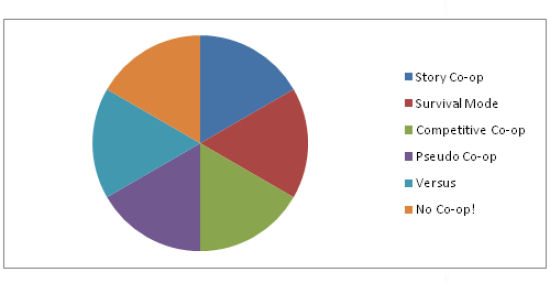As you are reading this from a site that caters for co-operative games, it is easy to assume that you are a co-op fan. You are someone that likes to work with others towards a common goal and revel in their friendship and camaraderie. If like me, you like co-op games over any other type, then the chances are that you will fight your corner, suggesting to other people that perhaps, in the days of increasingly improving online experience, co-op is the future.
Where does co-op stop and the solo experience begin?
Purists may suggest that there is only one type of co-op experience, the campaign co-op. This is the type of game that allows you to play through the main story with two or more players, be it Borderlands, Left 4 Dead 2, or the many other games that have graced computers and consoles over the years. I would agree that these are amongst some of the best co-op experiences, as the games are designed with the play style in mind. Maps may require the players to split up and use communication to succeed, or perhaps you will need to heal one another to make it to the end. These games are certainly the first degree of co-operation.

But what about the specific co-op experience bolted on to a single player game? This degree of cooperation is becoming increasingly popular with publishers who find themselves with a solo campaign, but look at the increasingly lucrative co-op market with hungry eyes. Why sell one copy, when you can sell one copy to person A and his three pals? This is the Survival Mode made popular by Gears of War 2. Although Gears 2 had co-op throughout, the average co-op fan was impressed by the other co-op experience available in the box that allowed you to work together against hordes of enemy AI. It almost seems that every new game has one of these experiences onboard; Alien vs. Predator, Call of Duty 5, ODST, Army of Two: The 40th Day, Lost Planet 2, Crackdown 2, Left 4 Dead. Is having an additional co-op mode enough to call the game co-op?
